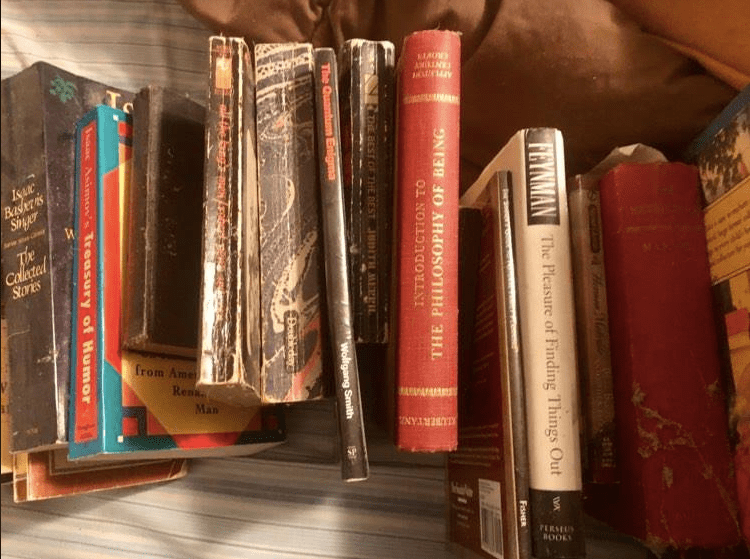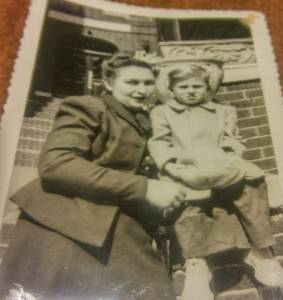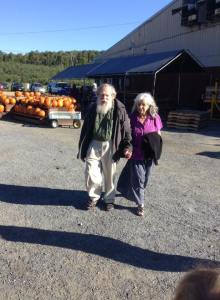One of the great benefits of having teenagers in the house (WE HAVE FOUR TEENAGERS IN THE HOUSE) is that you get constant updates on the things you do strangely, or poorly, or stupidly, or wrong. It’s pretty great.
Today, on the way to school, I was waiting for Eight O’Clock Bach to come on the radio, and they were playing some silly little French pieces with a flute, and a lot of airy runs and pointless meandering, and I said, “Ugh, could this sound more French?”
One of the kids asked in an exasperated voice, “Well, why do you listen to music you don’t like?” It seemed like the height of stupidity to them, and I can see why.
But as so often happens when I am challenged, I discover I’m not actually a complete moron, and I really do have a guiding principle for my behavior. So I said, “Because I believe in exposing myself to things that are not my favorite!”
This is absolutely true, and I think my parents deliberately raised me to think this way, especially my father. I remember going to art museums and never skipping the modern art galleries, even though they were, to put it mildly, not my father‘s favorite. We tramped through and probably obnoxiously proclaimed our opinions about the piles of lightbulbs and penis couches and whatnot; but we didn’t skip them. I also remember going to concerts of John Cage and Philip Glass, and also of less-talented composers who were heavily influenced by Cage and Glass, if you can imagine. And we would always debrief afterwards.
And sometimes we just complained, but usually we talked about why we didn’t like what we didn’t like. We talked about what people might find compelling about it, and why it wasn’t enough to make it worth it in the end, for us. And sometimes we did like it, and we talked about that, too. The key was, we didn’t encounter art that wasn’t our style just for the sake of enduring it. We really looked and really listened, and we really thought about it, and hashed it out. At least that’s how I remember it.
My kids have grown up in an era where everything is tailored to follow their tastes, and where everyone is expected to curate their own list of favorites This is considered the sensible and normal and sane thing to do. Why would you not? Why not make a playlist solely of things you enjoy, and stock your shelves with your favorite foods, and subscribe to only your most well-tested channels?
Let me be clear, this is not a moral question. There’s nothing wrong with making playlists of music you like! But it is a question of what you are doing to yourself, and what richness you may be missing, if you live your whole life this way.
And also what will happen when you come up to some unpleasant thing that you really can’t avoid, but you haven’t built up a habit of enduring.
Part of the answer is something I remember reading in C.S. Lewis’ Perelandra. Ransom, who has found himself sent as an emissary of some kind to an alien, untouched planet, is wandering around figuring out how to survive on a literally unstable landscape, and discovering which growing things are good to eat. Some of them are more to his liking than others!
He made his way gingerly towards the coast, but before he reached it he passed some bushes which carried a rich crop of oval green berries, about three times the size of almonds. He picked one and broke it in two. The flesh was dryish and bread-like, something of the same kind as a banana. It turned out to be good to eat. It did not give the orgiastic and almost alarming pleasure of the gourds, but rather the specific pleasure of plain food–the delight of munching and being nourished, a “Sober certainty of waking bliss.” A man, or at least a man like Ransom, felt he ought to say grace over it; and so he presently did. The gourds would have required rather an oratorio or a mystical meditation. But the meal had its unexpected high lights. Every now and then one struck a berry which had a bright red centre: and these were so savoury, so memorable among a thousand tastes, that he would have begun to look for them and to feed on them only, but that he was once more forbidden by that same inner adviser which had already spoken to him twice since he came to Perelandra. “Now on earth,” thought Ransom, “they’d soon discover how to breed these redhearts, and they’d cost a great deal more than the others.” Money, in fact, would provide the means of saying encore in a voice that could not be disobeyed. (Perelandra, chapter 4)
This is a slightly different phenomenon than what I was talking about. The plain berries aren’t bad; they’re just plain. Still, he has to compel himself to keep on accepting them, rather than skipping past them to get to the redhearts. He is not on earth; he’s in a different kind of place, where some things are better than others, but at least so far, everything is good.
I thought, too, of the little story of “
The Magic Thread,” where a young boy is given a magic ball that is his own life, spun out in thread. When he comes upon something in his life he’d rather skip, all he has to do is tug on the thread, and he’ll instantly find himself past it.
The following day at school, Peter sat daydreaming about what he would do with his magic thread. The teacher scolded him for not concentrating on his work. If only, he thought, it was time to go home. Then he felt the silver ball in his pocket. If he pulled out a tiny bit of thread, the day would be over. Very carefully he took hold of it and tugged. Suddenly the teacher was telling everyone to pack up their books and to leave the classroom in an orderly fashion. Peter was overjoyed. He ran all the way home. How easy life would be now! All his troubles were over. From that day forth he began to pull the thread, just a little, every day.
You can imagine how this goes. He finds himself pulling on the thread of his life more and more, skipping over difficult and boring and laborious times more and more often. And it’s not only because he’s selfish or lazy: Sometimes, as he grows, he pulls on the thread to skip over the painful spells for the people he loves: The teething and trials of his babies, and the sickness of his beloved wife.
But of course as he skips and skips, he finds himself older, sicker, and more feeble, and “as soon as one trouble was solved, another seemed to grow in its place.” The more he skips, the less he finds there is to enjoy, until he finds himself at the end of his life, everyone moved away or dying or dead, the thread all pulled out. Oops.
There’s less here to consider than in the Lewis book. The “magic thread” is more of a simple “stop and smell the roses” idea, because if you don’t stop because you think there might be a thorn, you’ll miss the roses; that’s all. In Perelandra, though, there are no thorns. It’s an unfallen world, untouched as yet by death or sin. And yet Ransom still feels impelled to stop and make his way through everything that is given to him. What’s that about?
I haven’t read the book in a long time, but I believe it has to do with accepting our relationship with God: Who we are is receivers, and it is our place to accept what we are given. Either
with intentional thanksgiving, or with
radical acceptance of his will. The fallenness in that scene was not the existence of the plain berries; it was Ransom’s initial idea to reject them because they weren’t good enough.
One happy secret is, making your way thoughtfully and attentively through the parts you never would have chosen give so much more savor to the redhearts. It happens in little ways, like with music. Bach is always Bach and always something I want to listen to, but man, a Brandenburg Concerto is a thousand times more satisfying if you’ve just sweated your way through Trois Petites Pièces du Augusta Holmès.
And it happens in bigger ways. If I weren’t in the habit of leaving the radio on through my less-favorite parts, I think I would find it a lot harder to have teenagers in the house, with their winsome habit of telling me how weird and dumb I am all the time. The truth is that all of my kids are my favorite, and they all have dear and wonderful and compelling virtues and attributes, and I really do want to be with them. But their virtues are much easier to note and appreciate when you are in the habit of patiently enduring and accepting . . . you know, the other bits. This habit of acceptance is one of those muscles you can use to lift all kinds of loads.
So that’s why I listen to music I don’t like. As I said, it’s not a moral issue, except in that it’s the kind of thing that trains you for the times when it
is a moral issue: When it’s not plain berries or subpar flute music, but it’s
the suffering and sorrow and struggle that comes into every life, especially the life of someone who’s chosen to seek God. By the end of
Perelandra, as I recall, Ransom is put in a place of accepting far more painful realities than eating a berry that doesn’t taste exquisite. And he does it.
The “inner adviser” that spoke to Ransom is the same one who speaks to us in our world. I hear the message, “Don’t feed on the redhearts only.” So, I try.





































